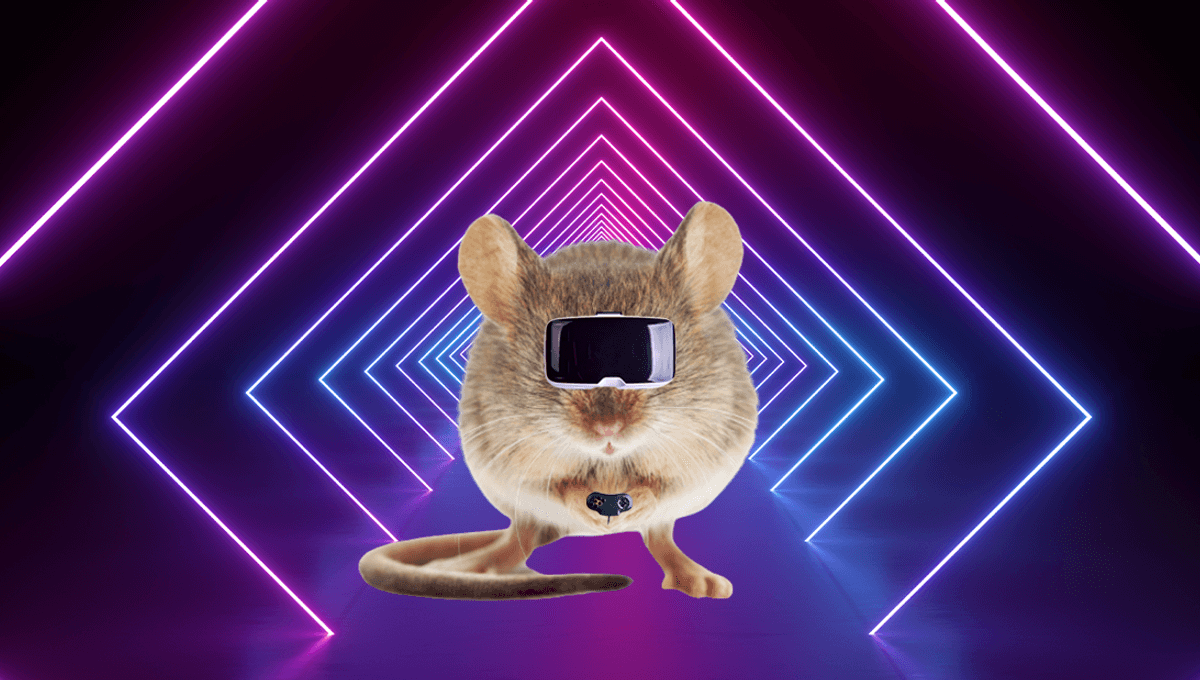
Why do some memories stay with us while others drift away? New research decided to explore the neuroscience that underpins this concept in a study that got mice playing virtual reality (VR) games while they observed their brain activity. It revealed a region of the brain not typically linked to memory retention can play a pivotal part in deciding what gets remembered long-term.
Mice playing the video game were sat on top of a Styrofoam ball that enabled them to decide where in the virtual reality they wanted to go. Depending on where they decided to explore in the game, they were met with unlimited sugar water, a small amount of sugar water, or a puff of air to the face.
Cues including sights, sounds, and smells were used as indicators of which reward they received, and eventually, the mice came to learn where the best sugar water would be found and when to brace for a puff of air to the face. These tests went on for weeks until mice were running full-speed towards the high sugar scenarios and more slowly when they knew an air puff was coming. They even got a handle on how much to lick the sugar water spout as they learned the different scenarios in which a lot or only a little was given.
While this was happening, researchers looked at how inhibiting or activating different parts of a mouse’s brain influenced its performance. Inhibiting the hippocampus caused them problems, as they failed to learn the VR routes and where to get the best rewards both in the short and long term. Inhibiting the anterior thalamus didn’t stop the mice from learning, but they weren’t able to commit what they had learned to long-term memory.
The VR gaming mice actually started to perform better when the anterior thalamus was stimulated, remembering which rewards were where and for longer. Here is where the sub-par sugar water reward’s genius comes in, as we know that really good things are easier to remember than rather underwhelming ones. Without interference, mice tended to forget just a few drops of sugar water, but when the anterior thalamus was stimulated, they remembered the location of even this poxy reward.
“The analogy would be your birthday dinner versus the dinner you had three Tuesdays ago,” said study co-lead Andrew Toader in a statement. “You’re more likely to remember what you had on your birthday because it’s more rewarding for you – all your friends are there, it’s exciting – versus just a typical dinner, which you might remember the next day but probably not a month later.”
To bolster their VR results, the researchers also incorporated new technology that enabled them to image specific areas of the brain at the same time. By following specific neurons’ activity over several months, they were able to observe that the thalamus was skewed towards only storing information about the big events (unlimited sugar water). By comparison, the hippocampus activated an equal amount for both the good and average sugar rewards.
The mouse model showed that when it comes to long-term memory, the anterior thalamus may be playing a bigger role than previously realized in determining what gets forgotten and what can be recalled for weeks to come.
“The thalamus sets up gradually increasing long-range interactions with cortex to stabilize these memories for long-term storage,” said senior author Priya Rajasethupathy, a neuroscientist at Rockefeller. “There’s a lot more to understand about how this selection and stabilization occur.”
“We think something like adrenaline or dopamine might be helping the thalamus to say, ‘okay, this memory is important to me, that’s not as important.’ And we still don’t understand how punctuated or continuous the memory stabilization process is, whether it occurs in one or a few steps or evolves continuously over a lifetime.”
The study is published in Cell.
Source Link: Mice Playing VR Games Reveal An Unexpected Brain Region For Long Term Memory